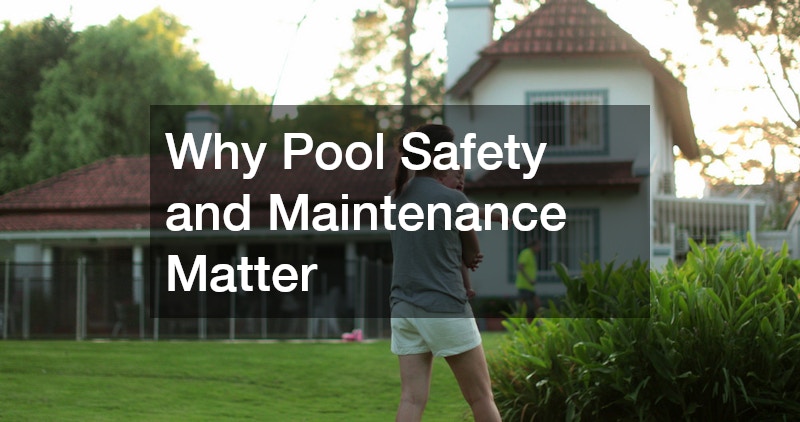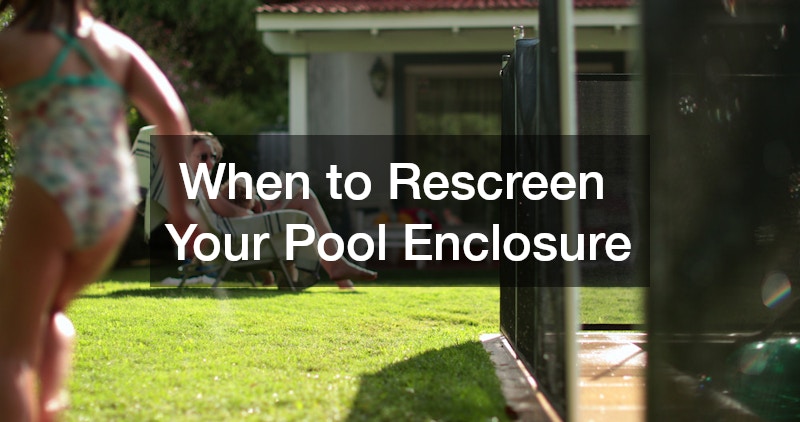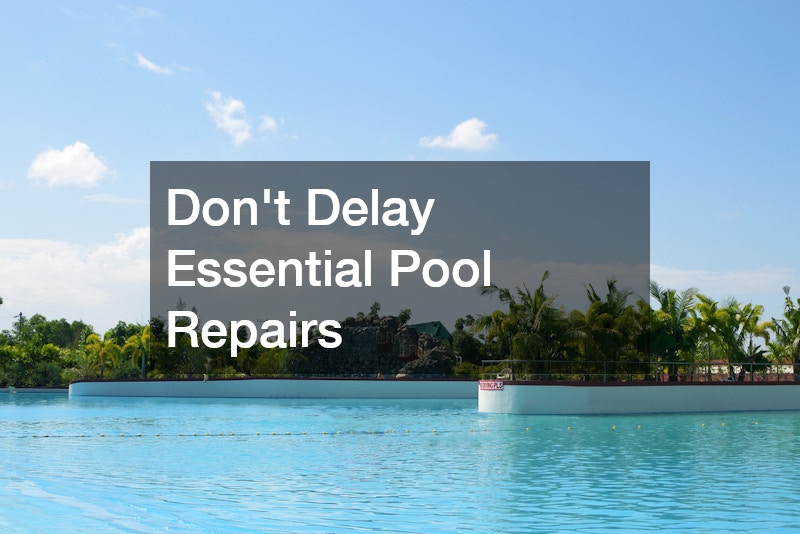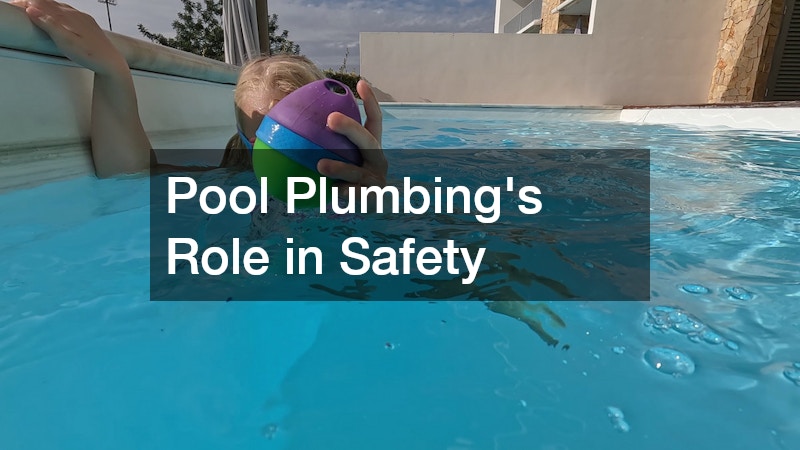The serene, inviting nature of a backyard pool is unmatched when it comes to providing a personal oasis for relaxation, fitness, and family fun. Whether you enjoy a late swim after work or host summer parties to beat the heat, pools are a cherished feature in many homes. But beyond the gleaming water and the allure of a refreshing dip lies the essential responsibility of maintaining a safe and pristine pool environment. Proper pool maintenance not only ensures the longevity of this luxury feature but also secures the well-being of all who use it. From the mechanics of the pool filter system to the aesthetic appeal of pristine tiling, every component demands timely attention and care. This commitment to vigilance transforms your pool into a truly secure and enjoyable space, safeguarding against potential hazards. The following sections will delve into why these safety and maintenance measures are crucial and how homeowners can effectively manage their pool environments to ensure both pleasure and safety.

Why Pool Safety and Maintenance Matter
Owning a pool entails a commitment to safety and maintenance that extends beyond simple aesthetics. Ensuring a secure pool environment reduces the risk of accidents and health hazards. Proper maintenance shields swimmers from unsafe water conditions and bacterial infestations that can arise from neglect. Regular inspection of the pool’s structural and mechanical systems plays a vital role in maintaining this secure setting.
A secure pool is an asset that not only enhances property value but also serves as a preventative measure against future issues. Maintenance tasks such as checking water chemistry, cleaning filters, and assessing the condition of pool equipment are non-negotiable for effective pool care. As a result, homeowners are encouraged to establish a routine maintenance schedule that covers all aspects of pool safety.
Whether dealing with minor repairs or routine cleanings, prioritizing pool maintenance ensures that problems are addressed before they escalate. Thus, understanding and implementing comprehensive maintenance strategies is key to fostering a safe swimming environment. Homeowners are advised to stay proactive in making their pool a source of enjoyment rather than a potential liability.
The Importance of Pool Enclosures
Pool enclosures are an essential facet of maintaining a secure pool environment. They provide a physical barrier that enhances safety, keeping unauthorized individuals, particularly children, from accessing the pool area unsupervised. An enclosure also protects the pool from debris and inclement weather, thus aiding in the overall maintenance by reducing the amount of regular cleaning required.
In addition to providing safety, pool enclosures offer an element of privacy and can enhance the aesthetic appeal of your pool area. Various designs and materials can complement your home’s architecture, creating a seamless extension of your living space. By minimizing exposure to external elements, they also prolong the lifespan of pool equipment and accessories.
By investing in an enclosure, homeowners not only secure their pool but also contribute to safer neighborhood environments. Enclosures signal dedication to maintaining a clean, sustainable, and secure pool, preventing unauthorized access and reducing maintenance efforts overall. It’s an investment that pays off both in terms of convenience and peace of mind.

When to Rescreen Your Pool Enclosure
Rescreening your pool enclosure is an often-overlooked maintenance task that has a significant impact on maintaining a secure pool area. Over time, screens can become worn or damaged due to weather, debris, or regular wear and tear. Identifying the appropriate time to rescreen pool enclosure helps in preventing further deterioration or unexpected failures that could compromise pool safety.
If you notice any visible signs of damage, such as holes, tears, or sagging in the screens, it is crucial to schedule a rescreen. Prompt action ensures that the protective benefits of the enclosure are not lost. Moreover, routine checks can help extend the lifespan of your pool enclosure by addressing issues before they escalate.
Maintaining a secure pool involves staying vigilant about the integrity of pool enclosures. Rescreening also helps in keeping pests and debris out, maintaining the water quality,y and reducing the need for additional cleaning. Regularly examining and rescreening can ultimately save time and resources while enhancing safety.
How Pool Tiling Improves Safety
Pool tiling plays an indispensable role in ensuring a secure pool environment. Beyond its aesthetic appeal, appropriately selected and well-maintained tiles can significantly enhance safety by providing a non-slip surface that reduces the risk of accidents. Regular inspections are necessary to ensure that tiling remains in good condition, with repairs conducted promptly to avoid potential injuries from sharp, broken tiles.
Incorporating high-quality, textured tiles can transform the pool from not just an extravagance but a safe amenity. These specialized tiles adhere to safety standards, providing essential grip underfoot, which is particularly crucial in poolside areas where water can create slippery conditions. Regular maintenance of tiling should include checking for loose tiles or grouting that could pose a hazard.
Additionally, maintaining pool tiles involves cleaning them to prevent the buildup of algae and other residues that can make surfaces slick. This maintenance enhances both the safety and appearance of the pool area, ensuring users can enjoy their pool without concerns over safety. Consistent care and attention to pool tiling underscore the commitment to secure swimming environments.

Don’t Delay Essential Pool Repairs
Timely Pool Repairs are fundamental in ensuring a secure swimming area for everyone. Delaying necessary repairs, even minor ones, can lead to more significant, costly problems while increasing safety risks. From repairing cracks in the structure to fixing dysfunctional equipment, immediate action is always advised.
Damage to pool infrastructure, like leaks or broken tiles, can exacerbate over time, leading to larger-scale degradation or even structural failures. Such scenarios not only compromise the safety of the pool but also escalate the cost and complexity of required repairs. Proactive attention to even the smallest irregularities can prevent hazards and maintain a secure pool environment.
Establishing a routine inspection process as part of regular pool maintenance helps in identifying the necessity for repairs. Addressing these needs promptly prevents disruptions to pool usage and protects both swimmers and the property itself. Overall, acknowledging and acting on repair needs is essential to sustaining a secure and pleasurable pool environment.
Inground Pools and Homeowners Insurance
Inground pools come with specific considerations, particularly in terms of homeowners insurance. Ensuring a secure pool is integral to mitigating potential liabilities that could affect your insurance premiums. By adhering to safety standards and maintaining comprehensive pool care, homeowners can positively influence their insurance conditions.
Homeowners insurance often requires certain safety measures, such as enclosures or alarms, to be in place to reduce liability. Installing these features not only protects your peace of mind but also aligns with insurance expectations, potentially even lowering premiums. Ensuring regular maintenance and repairs can further incentivize insurers by demonstrating a commitment to safety and proper ownership responsibilities.
Communication with your insurance provider regarding your pool-related setups and updates can help avoid potential pitfalls. Properly documented safety measures prove invaluable in the event of an insurance claim, providing evidence of due diligence and secure pool practices. Thoughtful coordination between homeownership and insurance protocols ensures a well-rounded, secure home environment.

Pool Plumbing’s Role in Safety
While often invisible, plumbing is a critical component of a secure pool system. Effective pool plumbing ensures that water circulates properly, reducing the risk of bacterial or algal blooms that can pose health hazards. Regular inspections by qualified plumbers help in preempting plumbing issues, ensuring consistent water quality and safety.
A reliable plumbing company offers essential maintenance services like checking for leaks, testing water pressure, and cleaning pipes. These services prevent deterioration and ensure the pool’s filtration systems operate optimally. By prioritizing plumbing, homeowners ensure that their pool remains a secure, healthy recreation option for years to come.
Appropriate plumbing infrastructure is key to maintaining a secure pool, supporting the overall functionality and health of both the pool and its users. Investing in professional plumbing services assures that complex systems are well-managed, reducing the risk of costly, preventable issues. Comprehensive plumbing oversight thus becomes an intrinsic part of pool safety priorities.
Protect Water Lines with Proper Plumbing
Maintaining the integrity of water lines through proper plumbing is an essential aspect of ensuring a secure pool. Damaged or inadequately maintained water lines can lead to leaks and water loss, impacting pool functionality and causing an increase in water bills. Routine checks of these systems safeguard the pool’s operational efficacy.
Technicians from a credible plumbing company can assess water lines for any signs of wear or weakness, addressing potential problems before they evolve into larger concerns. Informed homeowners understand that proper plumbing care helps protect their investment while contributing to sustainable water management practices.
By practicing due diligence through regular plumbing inspections and repairs, property owners can sustain the health of their pool and its adjoining systems. Ensuring robust water line integrity is a commitment to achieving a secure pool atmosphere that preserves resources and enhances swimmer confidence. This proactive approach assists in maintaining a balanced, environmentally responsible pool setup.
Insurance Risks of Poor Pool Maintenance
Neglecting pool maintenance directly influences the risk scenarios considered by insurance companies. Poor maintenance can result in dangerous conditions, increasing liability concerns, and potentially hindering claims if an incident occurs. Maintaining a secure pool involves routine checks, repairs, and upgrades that satisfy insurance prerequisites. The risks of an unfenced pool can be tragic, so make sure you’re protecting your family and friends.
Insurance policies may feature clauses that require evidence of adequate pool care as a condition for coverage. Failing to uphold these maintenance standards could lead to higher premiums or reduced coverage options. Proactively meeting maintenance guidelines shows a dedication to safety, demonstrating ownership responsibility to insurers.
To mitigate risks, homeowners should document maintenance practices, including dates and actions, to provide evidence of a well-maintained and secure pool. Contacting an experienced agent regarding any updates or potential changes to the pool setup provides clarity on policy impacts and establishes better protection measures. This engagement ensures ongoing risk management in line with secure pool objectives.
Hiring the Right Plumbing Company
Choosing the right plumbing company is crucial for sustaining a secure pool environment. With a myriad of plumbing contractors available, selecting a reliable partner who is experienced with pool systems can ensure the longevity and safety of your pool. Homeowners should prioritize companies that offer comprehensive assessments and tailored maintenance plans for their specific needs.
The availability of 24/7 emergency services is another vital consideration, as unexpected plumbing issues can quickly impact pool safety. A dedicated professional who responds promptly to your needs helps minimize downtime and reduce the risk of greater complications. Their expertise can safeguard the intricate workings of pool plumbing, preventing accidents and ensuring swimmer safety.
Consulting with a company that emphasizes clear communication about service processes and charges fosters transparency, assuring homeowners of credible, professional support. This careful selection process safeguards your investment, guaranteeing that pool plumbing remains a secure, seamless extension of your home’s amenities. Informed choices in plumbing services reaffirm commitment to the enduring safety and enjoyment of the pool.
In conclusion, the paramount importance of maintaining a secure pool cannot be overstated. Through a multifaceted approach combining regular maintenance, judicious repair timelines, and substantial safety features such as enclosures and high-quality tiling, homeowners can transform their pools into a perennial source of enjoyment and relaxation. An investment in the proper management of these elements enhances safety, upholds property value, and minimizes liability risks associated with pool ownership.
Responsible pool ownership extends to partnering with professionals, from pool technicians to insurance providers, ensuring comprehensive support for both practical and precautionary needs. Encompassing all facets of structural, aesthetic, and systemic conditioning, secure pool measures necessitate informed decisions and ongoing diligence. This commitment elevates the swimming experience, fostering environments that prioritize health, well-being, and leisure.
By adopting a proactive stance on pool safety and maintenance, homeowners safeguard their assets and the individuals who use them, a vital consideration that echoes throughout the long-term enjoyment of possessing this precious home feature. From tactical advice to dedicated professional support, securing a pool requires a cohesive effort—one that pays dividends in both comfort and peace of mind.




